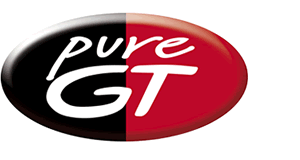UserDeleted
Banned
Sitting near four futuristic concept cars at BMW’s Munich headquarters, chief executive Harald Krüger says his company has no problem differentiating its products from the likes of arch-rival Mercedes-Benz.
How BMW feels and handles is based on drivetrain and software expertise that other manufacturers cannot deliver, he says. BMW’s Mini, for instance, “has an iconic driving feel”, while its Rolls-Royce cars are “like a magic carpet”.
But, in the next decade, product differentiation may become increasingly irrelevant as growing numbers of passengers using car-booking apps, such as Uber, Didi and Lyft, no longer care as much about the make or model of the vehicle.
Like the airlines, the carrier company may become more important to the consumer than the vehicle’s brand, with passengers often unaware whether they are flying in a Boeing or an Airbus.
Adapting to this change in consumer demand is one of the key challenges for the world’s leading carmakers. As vehicle ownership is expected to decline, the business is evolving into a race against the software groups to build new ecosystems that will be autonomous, connected, electric and shared.
“When we talk about mobility services, I don’t look to Munich or to BMW,” says Wilko Stark, head of strategy at Daimler, which owns Mercedes-Benz.
“We look to China — Didi, for example — we look to Uber and Lyft. We look at what Google is doing with [its self-driving car project] Waymo, and also Apple is trying a lot of things. These are the new competitors.
Full article
”https://www.ft.com/content/74e93632...Z19fLI-lVbsw087tKSbao8DeW5bZ6U&sharetype=gift
How BMW feels and handles is based on drivetrain and software expertise that other manufacturers cannot deliver, he says. BMW’s Mini, for instance, “has an iconic driving feel”, while its Rolls-Royce cars are “like a magic carpet”.
But, in the next decade, product differentiation may become increasingly irrelevant as growing numbers of passengers using car-booking apps, such as Uber, Didi and Lyft, no longer care as much about the make or model of the vehicle.
Like the airlines, the carrier company may become more important to the consumer than the vehicle’s brand, with passengers often unaware whether they are flying in a Boeing or an Airbus.
Adapting to this change in consumer demand is one of the key challenges for the world’s leading carmakers. As vehicle ownership is expected to decline, the business is evolving into a race against the software groups to build new ecosystems that will be autonomous, connected, electric and shared.
“When we talk about mobility services, I don’t look to Munich or to BMW,” says Wilko Stark, head of strategy at Daimler, which owns Mercedes-Benz.
“We look to China — Didi, for example — we look to Uber and Lyft. We look at what Google is doing with [its self-driving car project] Waymo, and also Apple is trying a lot of things. These are the new competitors.
Full article
”https://www.ft.com/content/74e93632...Z19fLI-lVbsw087tKSbao8DeW5bZ6U&sharetype=gift

